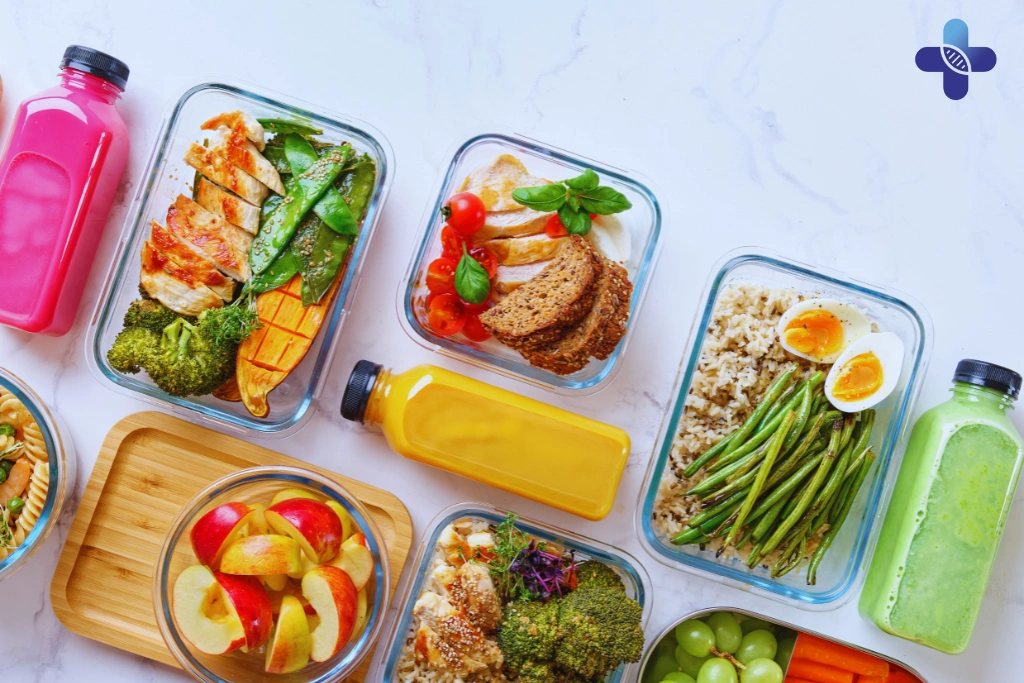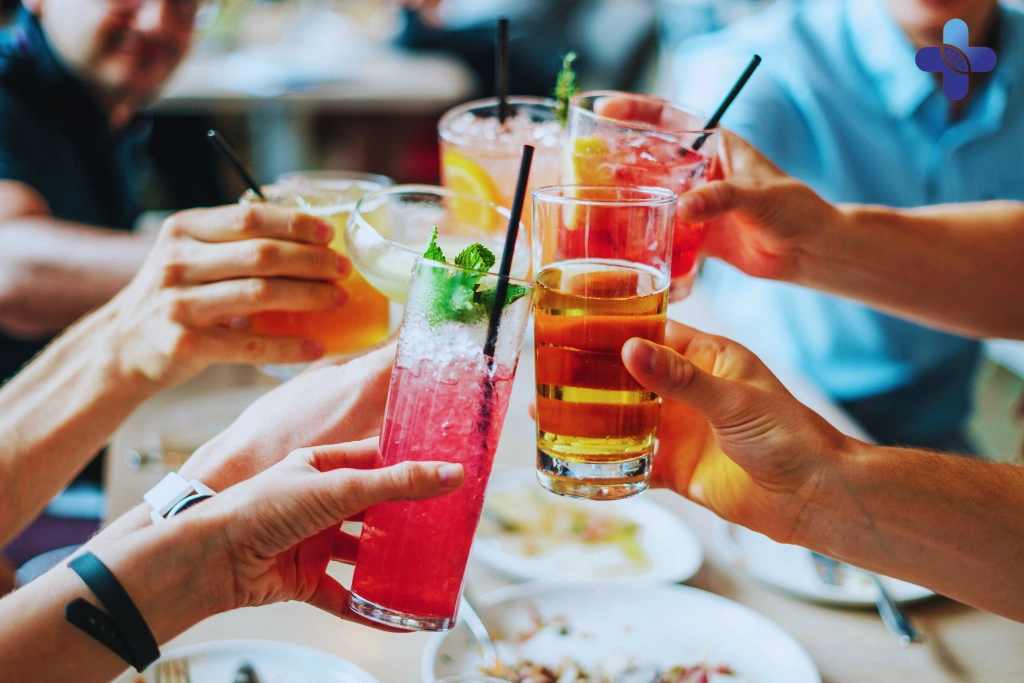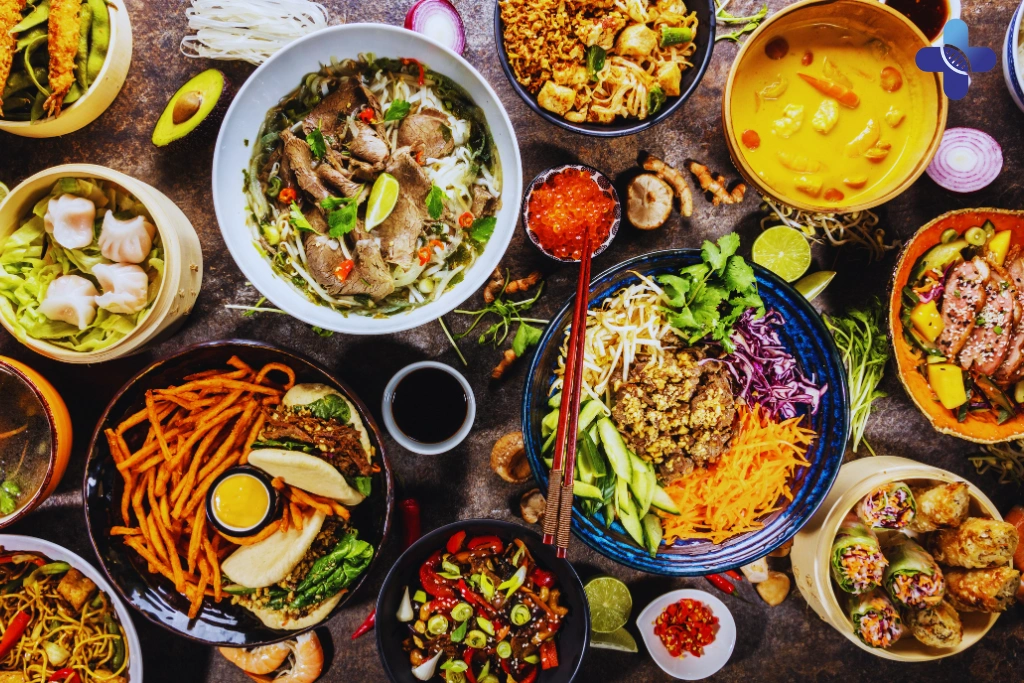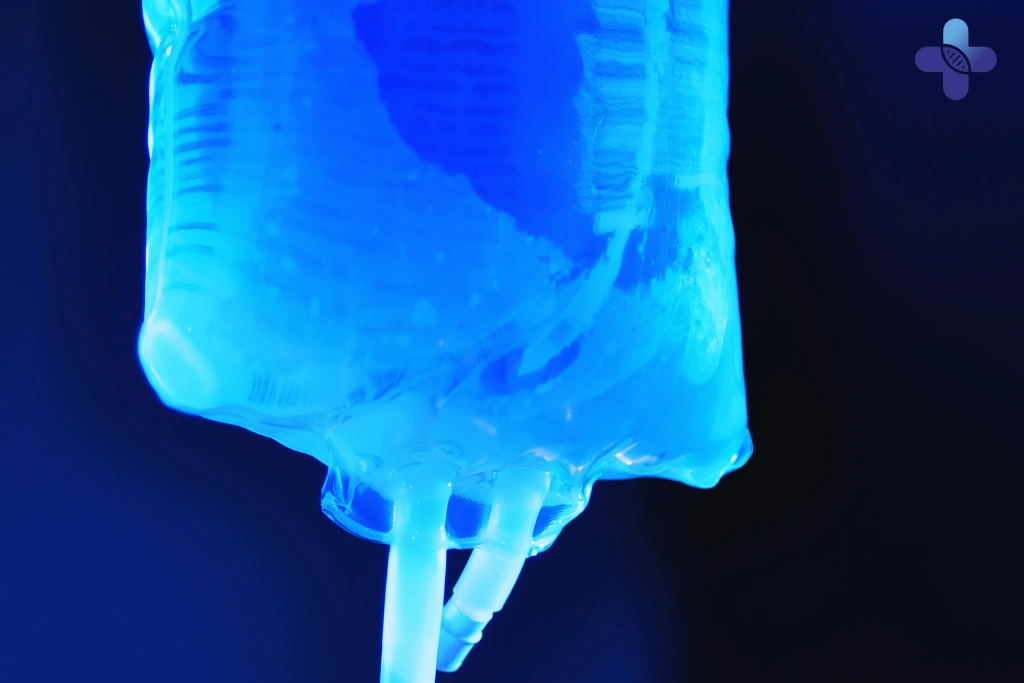When facing the discomfort of Bali Belly, knowing what to eat and drink becomes essential for recovery. At Life Everyouth Bali, we understand how difficult it is to decide what’s safe when your stomach is unsettled. That’s why our Medical Clinic in Bali has crafted this simple, doctor-backed guide to help you regain strength with the right choices. Whether you’re sipping fluids or easing into bland meals, let this resource from your trusted Bali Medical Clinic support your healing journey.
What to Eat & Drink with Bali Belly: A Simple Guide to Recovery

When your stomach is in turmoil with Bali Belly, the thought of eating anything can be daunting. But your body still needs gentle fuel and steady hydration to recover from the strain of diarrhea, nausea, and fatigue. Knowing what to eat with Bali Belly is not just about avoiding discomfort—it’s about giving your body the support it needs to heal.
At Life Everyouth Bali, a trusted Medical Clinic in Bali, we’ve helped countless travelers through this uncomfortable phase. In this guide, we’ll walk you through safe, soothing options for what to drink when you have Bali Belly, and what foods to start with. Backed by WHO and Kemenkes principles, this advice comes from real experience and proven care—straight from your local Bali Medical Clinic.
The Golden Rule: Hydration First, Food Second
When you’re dealing with Bali Belly, the number one priority is not food—it’s fluids. Diarrhea and vomiting rapidly deplete your body’s water and electrolytes, which can lead to serious dehydration if not corrected. Even if you have no appetite, you must begin replacing fluids as soon as possible to prevent further complications.
At Life Everyouth, our medical team often sees travelers try to eat too soon, only to worsen their symptoms. That’s why, as a leading Medical Clinic in Bali, we emphasize hydration above all else in the first 12 to 24 hours. Your digestive system needs time to rest, and your body’s survival depends far more on water and salts than calories during this phase.
Whether you’re sipping clean bottled water, oral rehydration salts, or fresh coconut water, your focus should remain on restoring balance. This is the safest first step toward recovery, and it’s a protocol we recommend at Life Everyouth Bali, your dedicated Bali Medical Clinic for safe and effective support when you’re unwell.
WHAT TO DRINK: Your Official Rehydration Menu

When your stomach is upset and your energy drained, the most important thing you can do is drink—not eat. At Life Everyouth Bali, we’ve treated many patients at our Medical Clinic in Bali whose symptoms improved significantly just by rehydrating properly. Your body can go days without food, but not without fluids and electrolytes.
Severe dehydration caused by Bali Belly can lead to dizziness, confusion, muscle cramps, and even hospitalization. That’s why our medical team emphasizes starting with trusted, easy-to-access fluids. Below, we break them down into the essentials and the supportive extras.
The “Must-Haves”:
- Air minum dalam kemasan (bottled water): Always go for sealed, trusted brands. Avoid tap water entirely—even for brushing your teeth—while you’re sick.
- Larutan Oralit (ORS): This rehydration solution, available in pharmacies and clinics across Bali, contains the perfect balance of salt, sugar, and electrolytes. It’s a cornerstone treatment at every Bali Medical Clinic, including Life Everyouth.
- Air Kelapa Segar (young coconut water): Often called “nature’s IV,” this hydrating drink contains potassium, magnesium, and glucose—critical for stabilizing your system after fluid loss.
Drinks in this category are not optional—they’re the foundation of your recovery. At Life Everyouth Bali, we advise our patients to sip small amounts frequently, even if they feel nauseous. If you’re too sick to keep any fluids down, our Medical Clinic Bali team can assist with IV Drip therapy as a safer alternative.
The “Good-to-Haves”:
- Sup kaldu bening (clear broth): A warm broth made from chicken or vegetables can be soothing, hydrating, and slightly nourishing when your appetite starts to return. Avoid broths with heavy seasonings or oils.
- Teh jahe hangat tanpa gula (unsweetened ginger tea): Ginger has natural anti-nausea properties. A mild, sugar-free ginger tea can help settle your stomach and keep fluids moving through your body.
As your trusted Medical Clinic in Bali, we encourage you to avoid sugary, carbonated, or caffeinated drinks during recovery. Life Everyouth Bali always puts your safety first—rehydrate gently, and your body will start to feel the difference.
WHAT TO EAT: The “Bland is Best” Recovery Diet
Once your body is accepting fluids and nausea begins to ease, it’s time to slowly reintroduce food. But not just any food—your stomach is still sensitive, and the wrong meal could trigger a setback. At Life Everyouth Bali, we guide patients in our Medical Clinic in Bali to follow a bland, low-fiber, easy-to-digest diet that supports healing without strain.
Spicy, fatty, or fibrous foods are far too harsh during the early recovery phase. Instead, focus on mild textures and simple flavors. We recommend the BRAT diet, trusted globally, with a local twist tailored for travelers recovering at a Bali Medical Clinic like ours.
The BRAT Diet (with a Bali Twist):
- Bananas (pisang): Gentle on the gut, rich in potassium, and helpful in firming loose stools.
- Rice (nasi putih polos): A classic source of easy-to-digest carbs that won’t irritate your stomach.
- Applesauce (if available): Low in fiber, soothing, and rich in pectin which helps regulate bowel movements.
- Toast (roti tawar panggang): Dry, unbuttered toast provides comfort and mild nourishment when you’re not ready for more.
- Pepaya (papaya): A tropical Bali-friendly addition, papaya offers enzymes like papain that gently support digestion.
At Life Everyouth, part of our personalized care in the Medical Clinic Bali setting includes dietary guidance tailored to local availability—because sometimes you just need someone to tell you what’s actually safe to order.
As You Start to Feel Better:
- Kentang rebus (boiled potato): Soft, salt-only potatoes are easy to tolerate and give you more energy without irritating your gut.
- Kerupuk tawar (plain crackers): Light, crunchy snacks that provide mild flavor and texture as your appetite returns.
- Ayam rebus suwir (shredded boiled chicken): A lean source of protein that is easy to digest when reintroduced slowly and without spices.
As your trusted Medical Clinic in Bali, Life Everyouth Bali reminds you: eat slowly, chew thoroughly, and stop if your stomach feels off. Recovery is a process, and your digestive system needs kindness above all else.
Foods & Drinks to AVOID AT ALL COSTS

During Bali Belly, some foods and drinks can make your symptoms much worse—even if they seem harmless. At Life Everyouth, we see many travelers delay their recovery simply because they reintroduce the wrong things too soon. Our doctors at the Medical Clinic in Bali strongly advise avoiding the following items until you’re fully recovered.
Avoiding these choices can prevent further stomach irritation, prolonged diarrhea, and painful bloating. If you’re unsure, stick to the “bland and safe” list and check with your provider at Life Everyouth Bali, your trusted Bali Medical Clinic.
Absolutely Avoid:
- Makanan Pedas (Spicy Foods): Even a small amount can inflame the gut lining and worsen cramps or diarrhea.
- Makanan Berminyak/Digoreng (Greasy or Fried Foods): Difficult to digest and likely to cause nausea or stomach pain.
- Produk Susu (Dairy Products: milk, cheese, yogurt): Lactose intolerance is common during gut infections, and dairy can trigger gas, bloating, or more diarrhea.
- Alkohol (Alcohol): Extremely dehydrating and harsh on the digestive tract—this will undo your hydration efforts.
- Kopi (Coffee): A stimulant that irritates the gut lining and increases bowel movements, which you don’t want right now.
At Life Everyouth, part of our commitment as a Medical Clinic Bali is helping patients recover smarter, not just faster. Avoiding these foods is as essential as choosing the right ones. Let your gut heal gently—with support from Life Everyouth Bali, your reliable Medical Clinic in Bali.
The Hydration Problem: When You Can’t Keep Anything Down
Sometimes, Bali Belly goes beyond discomfort—it becomes dangerous. If you’re too nauseous to sip water, coconut water, or even ORS, your risk of severe dehydration rises quickly. At Life Everyouth Bali, we see this situation often in our Medical Clinic in Bali, especially among travelers who delay treatment hoping to “wait it out.”
The truth is, if you’re vomiting every sip you take, oral hydration is no longer effective. You may feel weak, dizzy, or disoriented—and these are red flags. When your stomach rejects fluids, it’s time to take action fast. As a trusted Bali Medical Clinic, we offer a safe, medical-grade solution used by doctors worldwide.
There is a common problem: what if you are too nauseous to even drink? This is when dehydration becomes a serious risk. The most effective medical solution is to bypass the stomach entirely. Our Bali Belly Recovery IV Drip delivers critical fluids, electrolytes, and anti-nausea medication directly into your system for immediate relief. Learn more about our at-home treatment that works even when you can’t eat or drink.
At Life Everyouth, we make this therapy accessible and safe, wherever you are. Whether at your villa, hotel, or our Medical Clinic in Bali, your hydration—and your comfort—are our priority. Let Life Everyouth Bali help you recover faster and safer.
Conclusion What to Eat With Bali Belly: A Simple Diet & Recovery Guide

Recovery from Bali Belly doesn’t happen overnight—but with gentle care, it does happen. At Life Everyouth Bali, we always remind our patients: listen to your body. If you’re not ready to eat, don’t force it. Start with hydration, then move to simple, bland foods when your stomach is ready. That slow, patient approach is what we recommend every day at our Medical Clinic in Bali.
With the right fluids, a safe Bali Belly diet, and medical support when needed, your strength will return. Soon enough, you’ll feel confident enjoying Bali’s amazing culinary scene again. Whether you need guidance or a fast-acting IV treatment, Life Everyouth, your trusted Bali Medical Clinic, is here to help you recover fully and safely.
Frequently Asked Questions (FAQ) What to Eat With Bali Belly: A Simple Diet & Recovery Guide
How long should I stick to this bland diet?
It’s best to stay on a bland diet for 24 to 48 hours after your symptoms have clearly improved. This allows your gut to fully recover before reintroducing more complex foods. At Life Everyouth Bali, our team at the Medical Clinic in Bali recommends a gradual transition to avoid triggering a relapse. Start slow, and trust your body’s signals.
Can I eat other fruits besides bananas and papaya?
We advise avoiding most fruits in the early stages. High fiber and sugar levels in fruits like mango, pineapple, or watermelon can irritate the gut. In our experience at Life Everyouth, part of the healing strategy at our Bali Medical Clinic is limiting anything that may disrupt your fragile digestion.
Is jamu (turmeric drink) good to drink when I have Bali Belly?
While jamu is packed with anti-inflammatory benefits, it’s often too strong for an already sensitive stomach. We usually recommend waiting until you’re mostly recovered before reintroducing herbal drinks. As your trusted Medical Clinic in Bali, Life Everyouth focuses on safe, gentle hydration in the early phase.
I’m a vegetarian. What protein can I eat?
After the BRAT diet phase, you can try soft, well-cooked tofu or clear lentil soup (dal). Both are protein-rich and gentle on digestion. At Life Everyouth Bali, we offer dietary guidance for all patients, especially those seeking plant-based options at our Medical Clinic Bali.
Why should I avoid dairy products?
Bali Belly can temporarily impair your body’s ability to digest lactose. Dairy may worsen bloating, gas, and diarrhea. That’s why Life Everyouth, as a leading Bali Medical Clinic, generally advises avoiding milk, cheese, and yogurt until your gut lining has fully healed.
What about yogurt? Isn’t it full of good probiotics?
True, yogurt contains beneficial probiotics. However, it also contains lactose, which may be hard to digest during acute illness. At Life Everyouth Bali, we suggest switching to a non-dairy probiotic supplement instead, especially in the early days of recovery at our Medical Clinic in Bali.
Why is fresh coconut water so highly recommended?
Coconut water is loaded with natural electrolytes like potassium and sodium, making it ideal for rehydration. It’s gentle on the stomach and widely available across Bali. At Life Everyouth, we often recommend it to patients at our Medical Clinic Bali as a natural alternative to commercial electrolyte drinks.
I don’t feel like eating at all. Is it okay to just drink fluids for a day?
Yes, absolutely. For the first 12–24 hours, focusing solely on hydration is not only okay—it’s recommended. At Life Everyouth Bali, our medical team always reminds patients at our Medical Clinic in Bali that fluids come first, and food can wait until your appetite returns naturally.
Should I order my food spicy, “as the locals do,” to “kill the bacteria”?
No—this is a dangerous myth. Spicy food will further inflame your digestive tract and worsen your symptoms. Our team at Life Everyouth, operating as a trusted Medical Clinic in Bali, strongly advises against this. Stick to bland foods until you’re fully better.
How can I order plain white rice or simple soup from a hotel or Gojek?
It’s easy. Search for “nasi putih” (plain white rice) or “sop kaldu ayam” (chicken broth soup). You can request “tanpa sayur” (no vegetables) for an even plainer version. These options are widely available and commonly used during recovery—something we often guide patients through at Life Everyouth Bali, your local Medical Clinic Bali.
